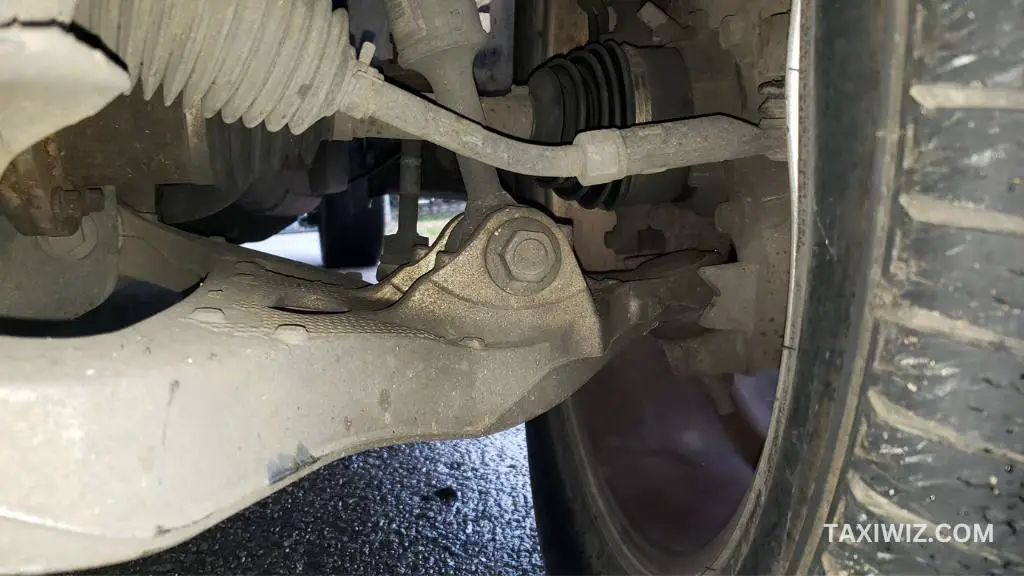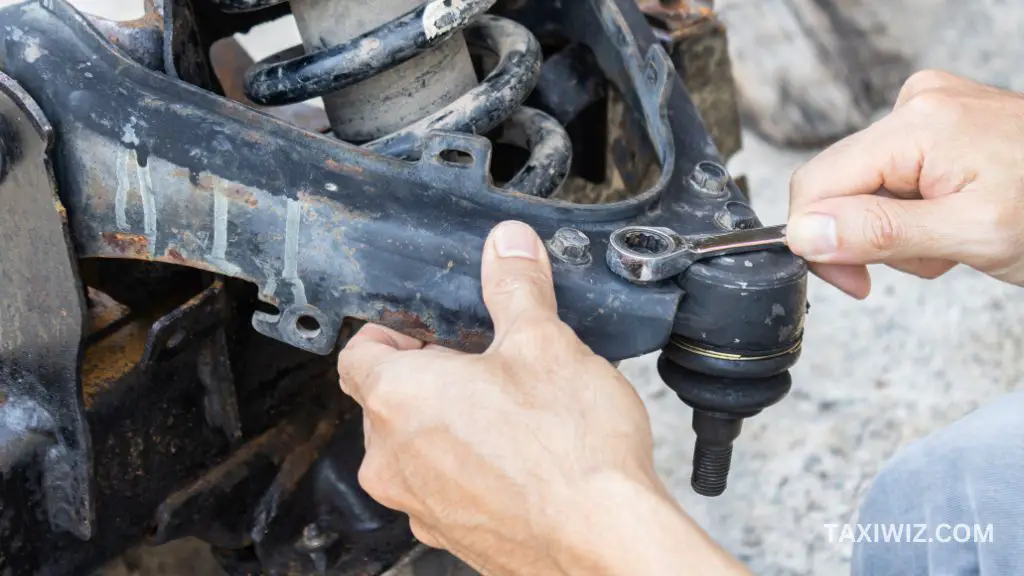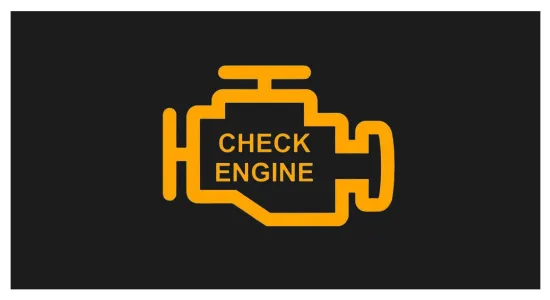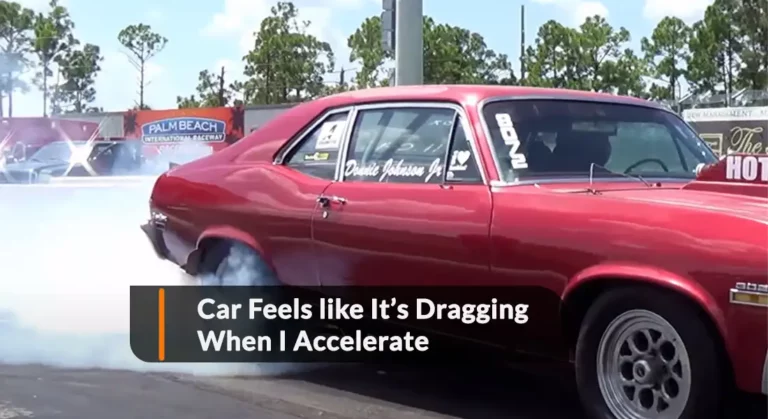Groaning Noise When Turning At Low Speed – 6 Reason With Fixes!
Cars typically provide the best experience when you can drive them at high speeds and handle them without a squeak from the vehicle. Therefore, it’s natural to feel concerned if it starts emitting sounds all of a sudden.
Typical reasons behind a car making groaning noises when turning at low speeds include;
- Fragmented pinion and steering rack
- Steering column bearing wearing out
- Ball joints deteriorating
- Shocks getting depreciated
Conducting an immediate diagnosis is a must if the car begins making a groaning noise when turning at low speed. Leaving it unaddressed will cause the vehicle’s condition to constantly deteriorate.
Why a Car Groaning Noise When Turning At Low Speed?
Steering wheel issues are the primary reason why your car might make groaning noises when turning. There is a plethora of components in the system that can cause it to act out.
Below are some of the most common steering system issues that are responsible for a car groaning when turning at low speed. Keep on reading to know about the reasons in-details and how you can solve the issues.
#1. Damaged Pinion and Steering Rack

The steering rack and pinion are two of the most vital components of a car’s steering system. They consist of multiple smaller pieces and they tend to tend to wear out over time.
Depreciation or damage on these two parts often causes the car to give out loud banging sounds when turning. Leaving it unchecked will cause the issue to branch out to the steering column.
Solution
There are no alternative solutions to resolving this issue other than completely replacing the steering rack and pinion. Changing them can be a costly process. Therefore, it’s best to diagnose beforehand to find out if the problem is elsewhere.
#2. Column Bearing Wearing Out
The steering wheel of a car sometimes makes squealing sounds during turns. A possible reason behind this issue can be the part’s bearings wearing out. If they are in a terrible condition, uncontrollable play on the steering wheel also occurs.
Solution
Steering wheel bearings getting weary is easily solvable by using grease to lubricate it or any other fluid with similar properties. An adjacent component to it is the boot which plays a vital role in preventing water from infiltrating the car’s cabin.
The squealing noise can also be a result of the boot being dry. Therefore, consider lubricating it as an extra measure.
#3. Shocks Getting Depreciated
Suspension components like shocks are vital for a car’s handling and for it to traverse safely through rough terrain. Its underperformance can cause the vehicle to produce screeching sounds when turning.
The possible reason behind a car’s shocks depreciating is being loosely mounted. Drivers will be able to notice the component moving around during turns in such a scenario.
A vehicle’s shocks are also surrounded by coil springs which are meant to provide it additional support. Users will hear a bad sound if they break down or get damaged.
Solution
Basic automation skills are all you will need to fix issues related to the shocks. Simply tightening its position will cause it to stay in place and stop making noises.
On the other hand, a replacement will be necessary if the coil springs are damaged. They are available at an affordable price and you can easily change them yourself if you have the habit of maintaining your own car.
#4. Ball Joints Underperforming

Various ball joints are connected to the steering system and the car’s suspension. They are vital for the car’s smooth handling through snappy response and effective swiveling. Usually, they are placed on the system’s control arms and suspension.
Ball joints wearing out heavily affects their performance, causing them to act out excessively and become locked in a particular position. Such a scenario will result in the wheels becoming noisy whenever the vehicle tries to make a turn.
Solution
Replacing the worn-out ball joints can easily solve this issue. They are readily available in most car servicing centers and large-scale hardware stores. Changing them will not only stop the groaning but also provide a smoother handling experience.
#5. Battered Tie Rod Ends
Tie rod ends are the connectors between the pinion and rack of the steering wheel and the wheels. They are fitted with rubber boots that are prone to tears over continuous use.
In such a scenario, sounds of the tie rod bouncing can be heard once the metal impacts the hub.
Solution
The only solution to the tie rod ends wearing out is to replace them. Using them in a battered condition will lead to more severe harm to your car.
Replacing tie rod ends by yourself is a risky endeavor and can lead to more problems if you mess it up. Therefore, it’s best to hire the services of a mechanic in this case.
#6. Ineffective Arm Bushings
Control arms can become a source of groans while turning if their bushings have depreciated. Loud bangs from the part are audible when making turns in such a scenario.
Leaving this issue can pose extremely dangerous consequences. At one point, the driver may even feel the car shifting due to the weight of the parts hitting its housing sides.
Solution
A possible reason behind the bushings acting out is the wrong positioning of the control arms. Therefore, it’s best to start by checking if they are properly aligned. However, if the issue still persists, then it’s best to change the whole mechanism.
Noise when turning steering wheel at slow speeds >> Check out this video below:
Frequently asked questions (FAQs)
1. Why is my car making a whirring noise when turning?
A whirring noise typically indicates that the bearings of your car’s steering wheel has deteriorated. Replacing them should easily solve the situation.
2. What is the reason behind the power steering groaning?
The power steering usually starts groaning during turns if its fluid level is low. Since most novice drivers do not know how to check it, the sounds often take them by surprise.
3. Why does my wheel make a grinding noise during turns?
A possible reason for the wheels getting noisy during turns is their bearing wears out.
Conclusion
A good knowledge of the car’s steering system and suspension is necessary if you want to prevent your car from groaning turns. Fixing this problem becomes relatively simple once you successfully diagnose the component causing it.
In most cases, readjusting the components of the steering wheel system or transmission should suffice. However, it’s best to replace the damaged or worn-out part.
That way, it will not only solve the sound issue but also improve the car’s handling.


![Brake Shudder After New Rotors And Pads [ Cause + Fix]](https://taxiwiz.com/wp-content/uploads/2023/08/Brake-Shudder-After-New-Rotors-And-Pads-768x426.jpg)
